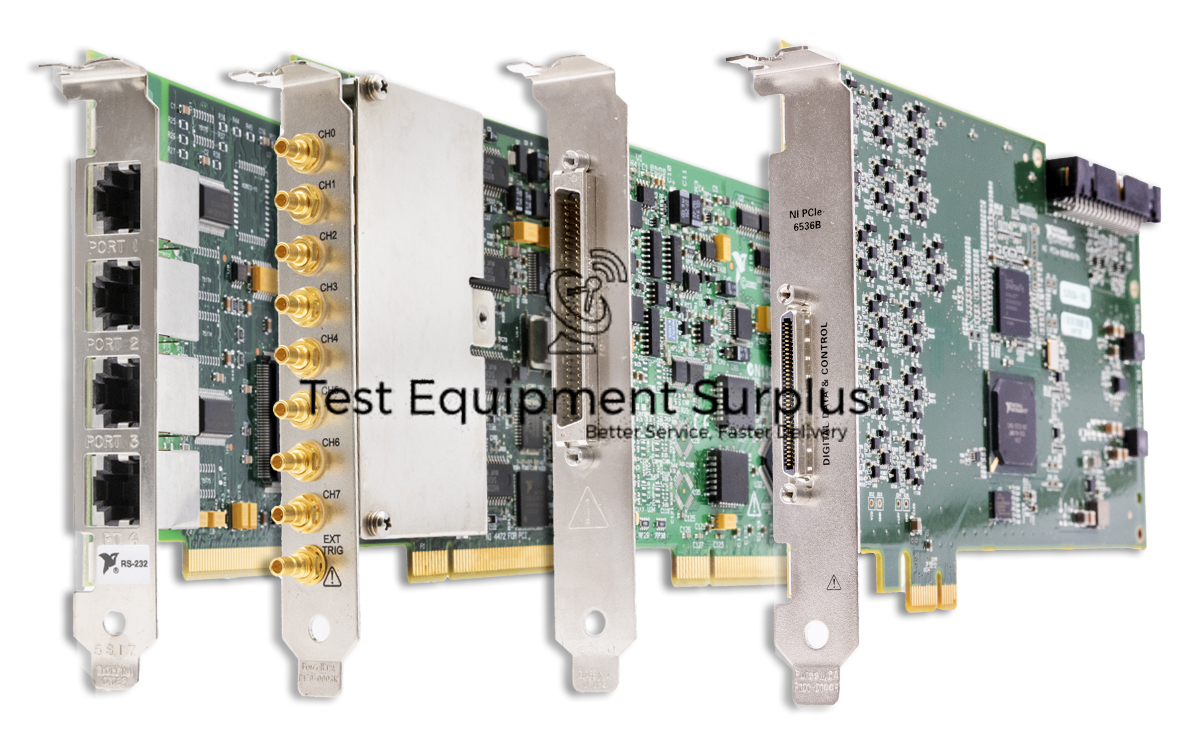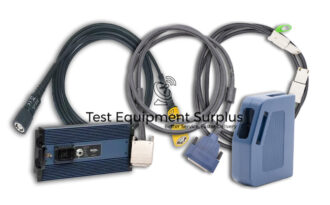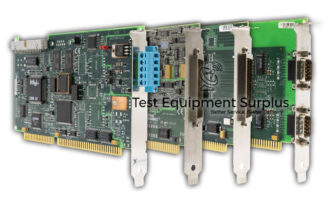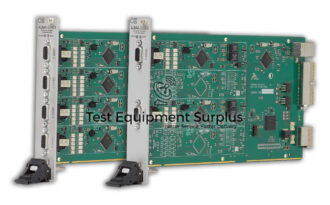Description
The PCI-8431/4 is a serial interface card with the National Instruments part number 778981-01, which does not support DMA transfers, resulting in an interrupt trigger when the FIFO reaches a specified level.
Handshaking is utilized to pause data transfer in case of FIFO overflow, leading to a decreased throughput, especially when smaller FIFOs are in use.
This interface card allows for highly customizable baud rates ranging from 50 b/s to 2 Mb/s, which can be conveniently configured via MAX (Measurement & Automation Explorer), Windows Device Manager, or programmatically through the NI-Serial API.
Additionally, it is equipped to support the latest PC technology, with multiprocessor capability and hyper-threading technology that allows a single processor to handle two threads of commands simultaneously for improved performance.
The PCI-8431/4 has reached its mature status, as announced by National Instruments, but it remains available for purchase and repairs through Apex Waves.
| Feature | Description |
|---|---|
| Part Number | PCI-8431/4 |
| National Instruments Part Number | 778981-01 |
| DMA Transfers | Not available |
| Interrupt Trigger | FIFO reaches a determined level |
| Handshaking | Used to pause data transfer if FIFO overflows |
| Throughput | Decreased with smaller FIFOs due to handshaking |
| Custom Baud Rate | 50 b/s to 2 Mb/s |
| Configuration Methods | MAX (Measurement & Automation Explorer), Windows Device Manager, NI-Serial API |
| Processor Support | Multiprocessor and hyper-threading |
| Hyper-threading Technology | Allows one processor to process two threads simultaneously |
| Mature Status | Announced by National Instruments; available for purchase and repairs by Apex Waves |
Question 1: What data transfer limitations might users experience with the PCI-8431/4 serial interface card due to its lack of support for DMA transfers and reliance on handshaking to prevent FIFO overflow?
Answer 1: The PCI-8431/4 implements handshaking to pause data transfer in order to prevent FIFO overflow, but this precaution can lead to decreased throughput, particularly when smaller FIFOs are used.
Question 2: What is the impact of the PCI-8431/4 serial interface card’s lack of DMA transfer support on its data throughput when using smaller FIFOs?
Answer 2: The lack of DMA transfer support on the PCI-8431/4 serial interface card results in decreased data throughput when using smaller FIFOs, as handshaking is needed to pause data transfer and prevent FIFO overflow, leading to an interruption-driven data handling process that can slow down the overall transfer speed.
Question 3: How does the PCI-8431/4 interface card’s handshaking feature mitigate the risk of FIFO overflow and what impact does this have on data transfer throughput?
Answer 3: The National Instruments PCI-8431/4 serial interface card employs handshaking to pause data transfer in the event of a FIFO overflow, which consequently leads to a decreased throughput, particularly when smaller FIFOs are utilized.
Question 4: What precautions does the PCI-8431/4 implement to prevent FIFO overflow during data transfer, and what impact does this have on its throughput?
Answer 4: Users of the PCI-8431/4 serial interface card might experience decreased data transfer throughput, particularly when smaller FIFOs are used, due to the card’s lack of DMA transfer support and its reliance on handshaking to manage data flow and prevent FIFO overflow.
Question 5: How does the National Instruments PCI-8431/4 serial interface card handle situations where there is a risk of FIFO overflow, and what impact does this have on data transfer throughput?
Answer 5: The PCI-8431/4 interface card uses handshaking to pause data transfer if there is a risk of FIFO overflow, which helps prevent data loss, but this mechanism can lead to reduced throughput, particularly when smaller FIFO buffers are utilized.




